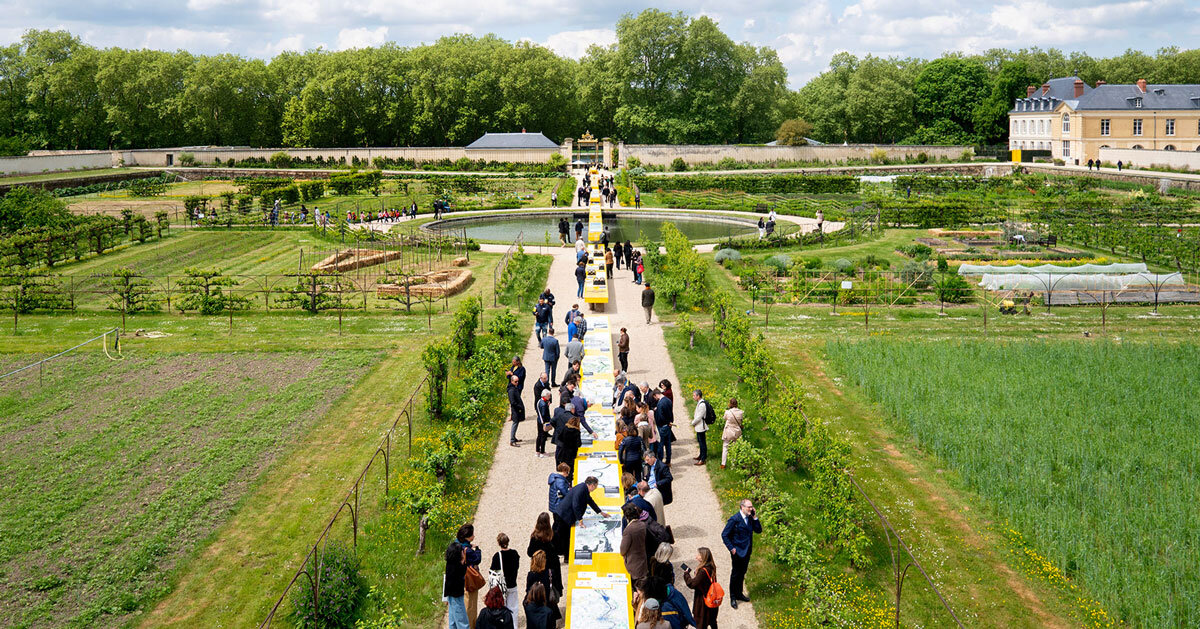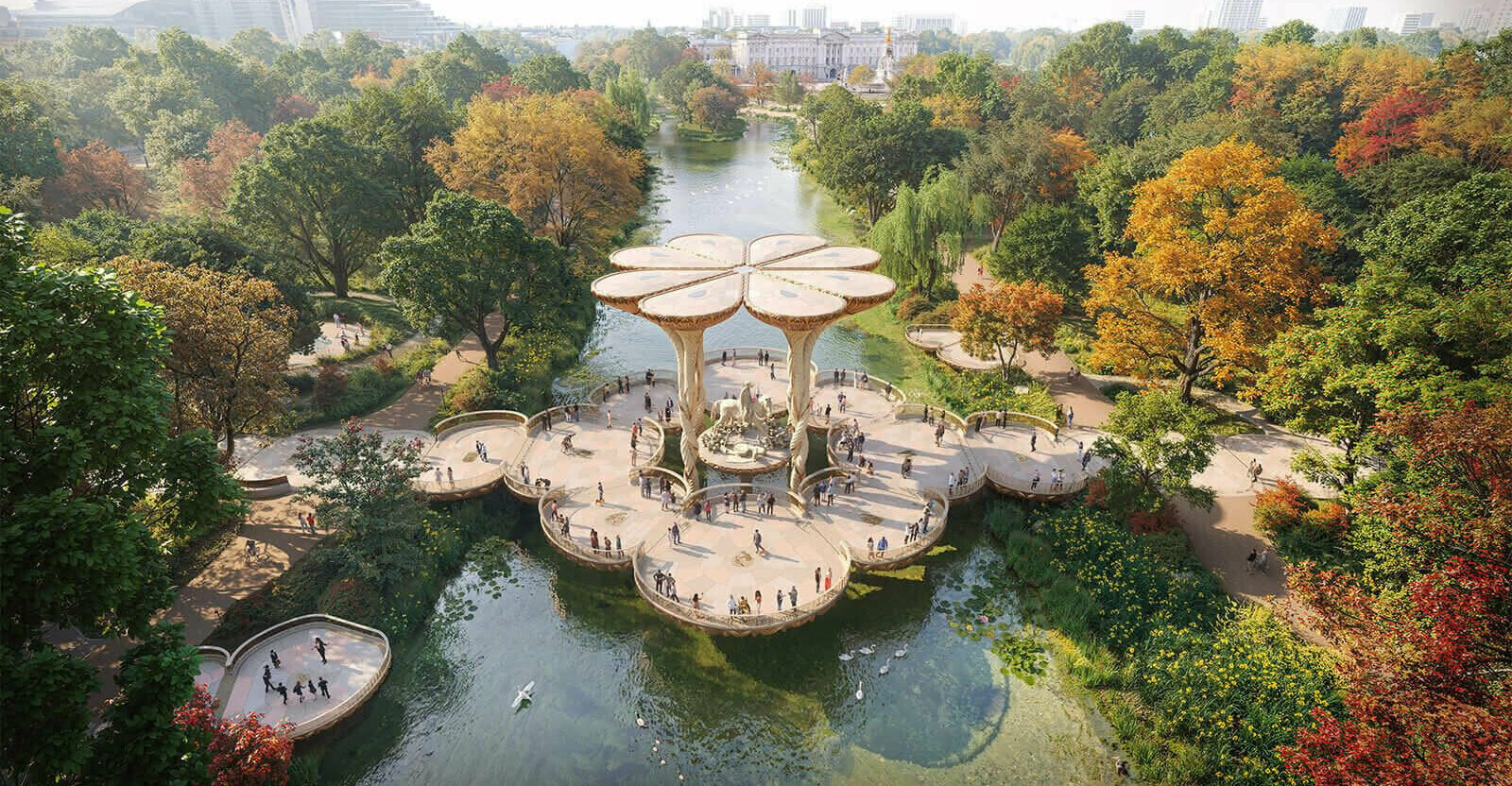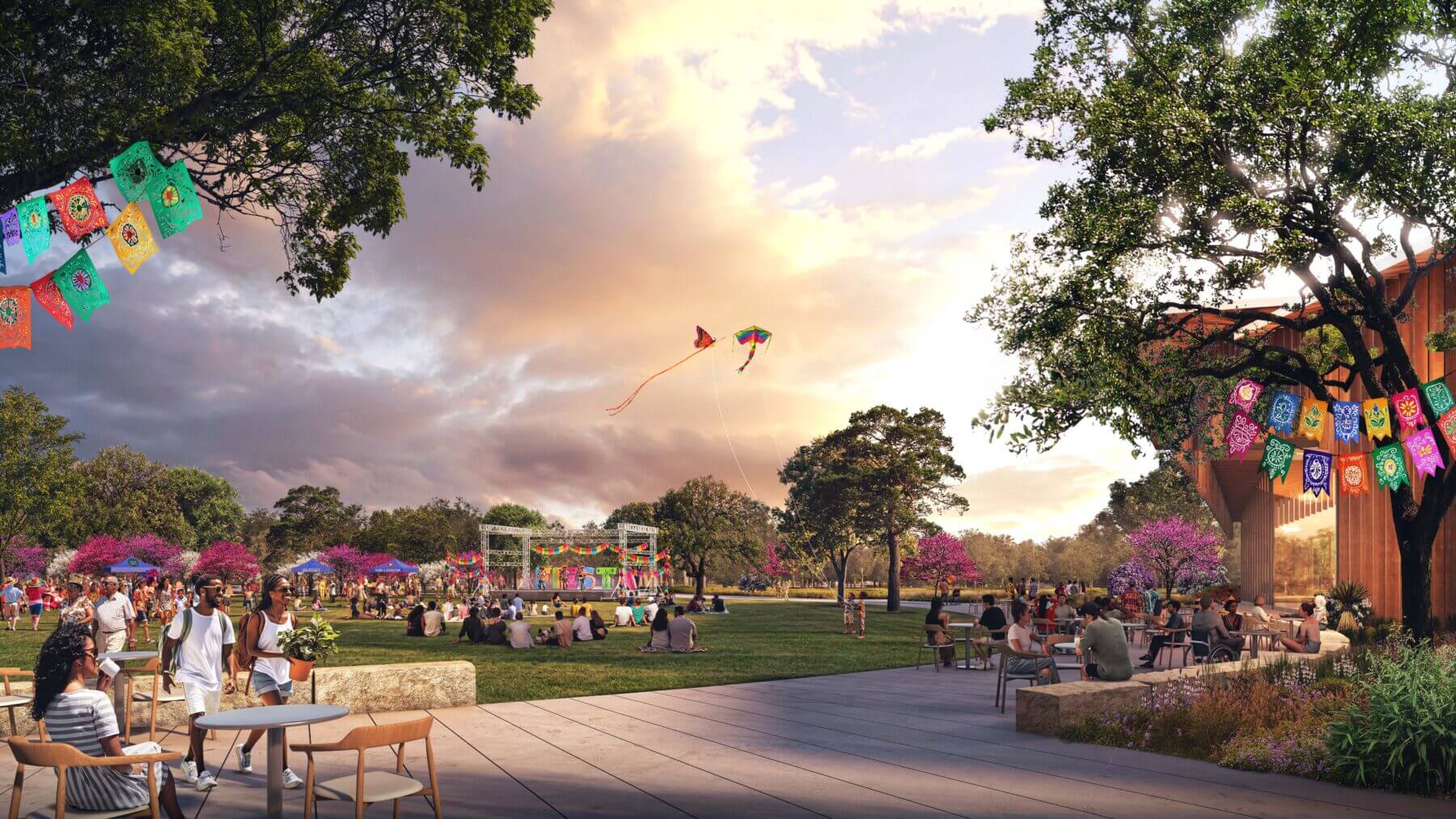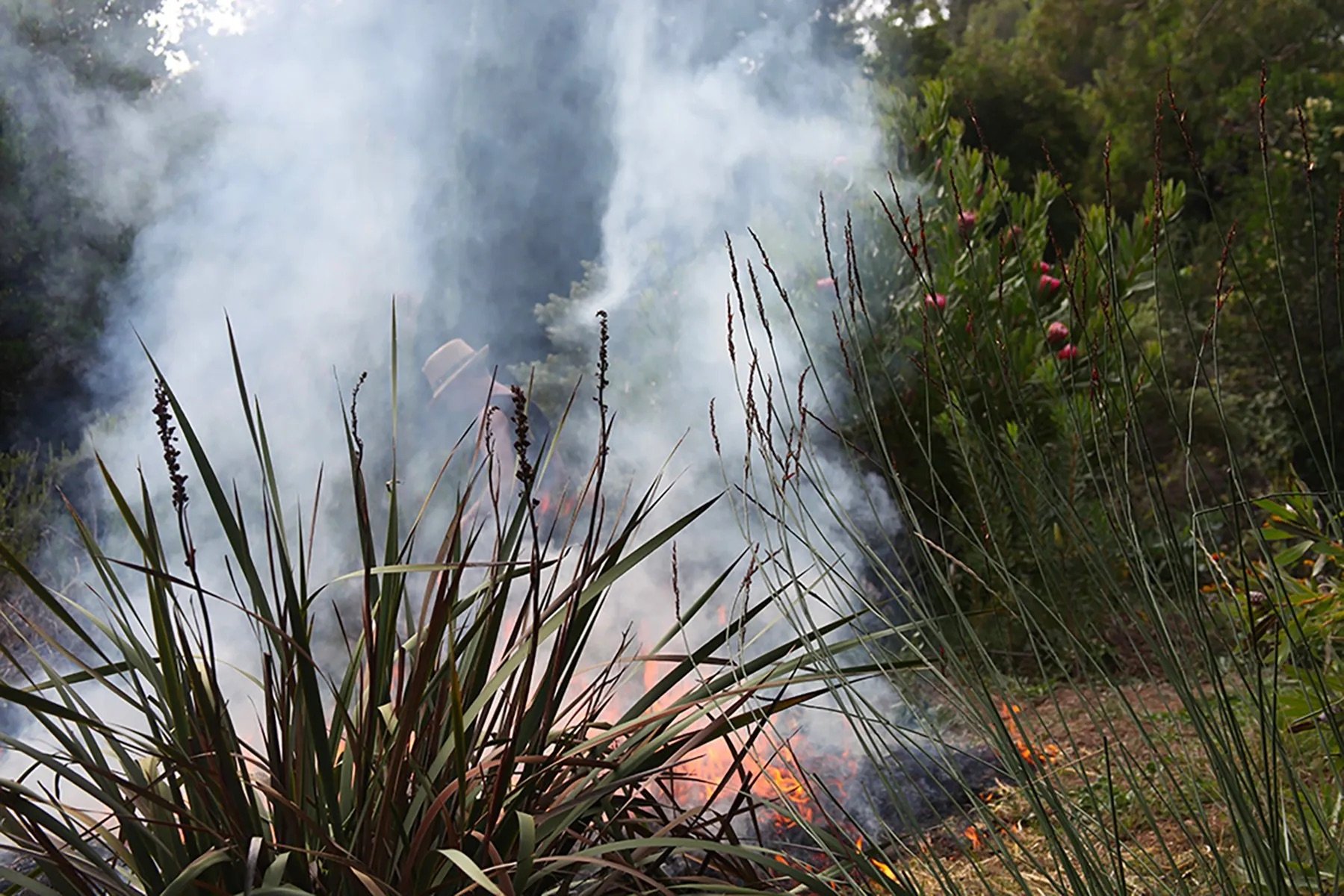May highlights included Studio 5•5’s 500-meter climate dialogue table in Versailles, five design proposals for a new Queen Elizabeth II memorial, and Sasaki’s plan to transform a closed San Antonio golf course into a biodiverse arboretum and public park.

Studio 5•5 has built a 500-metre-long table stretching through the historic gardens of Versailles, as part of the Biennale of Architecture and Landscape (BAP!), curated by Agence Ter. The installation invites people to sit, talk, and share ideas - turning a simple table into a symbol of how we can gather in landscapes to face big issues like climate change. It’s a reminder that landscape design isn’t just about space, but also about creating moments of connection and dialogue.
See feature image above from designboom.com
This year’s Venice Architecture Biennale, curated by Carlo Ratti, pushes the boundaries of what architecture can be - featuring digital installations, immersive experiences, and speculative futures. One standout is FundamentAI, an exhibit exploring how artificial intelligence and nature might work together to shape the cities of tomorrow. While exciting, some critics feel the Biennale is drifting too far from the real-world materials, spaces, and social responsibilities that define architecture and landscape architecture. It raises an important question: how far should we go with experimentation before we lose touch with the places and people we design for?
A new public memorial for Queen Elizabeth II is planned for St. James’s Park in London, with five shortlisted designs now revealed. Proposals include a ‘Garden of Time’, an elliptical lake, a sunken woodland walk, a spiral path through a wildflower meadow, and a shaded circular grove. Each design uses landscape to honour the Queen’s legacy - creating spaces for reflection, biodiversity, and public connection. The final design will be selected later this year after public feedback.

A recent ASLA survey shows overwhelming support for a structured commitment program to tackle climate change and biodiversity loss within the profession. Many respondents called for clearer benchmarks, policy advocacy, and integration of regenerative practices into licensure and continuing education. The results signal strong professional momentum for transforming landscape architecture into a force for systemic ecological change.
Unveiled at the Venice Biennale, FundamentAI is a design concept that explores how cities could be shaped by both artificial intelligence and nature. Created by a team of architects, ecologists, and technologists, the project uses AI trained on ecological systems to generate ideas for future landscapes - like buildings grown from trees, walkways made of mycelium, and flexible green corridors that adapt over time. Though still experimental, FundamentAI offers a glimpse into how landscape architecture might evolve by blending technology with natural processes to create more regenerative urban environments.
Design firm Sasaki is transforming a closed 130-acre golf course in San Antonio, Texas, into an arboretum and public park. The new space will highlight native Texan plants, restore damaged habitats, and improve water management. With features like educational gardens, nature trails, and “rewilded” areas, the project suggests how landscapes can be reimagined to support biodiversity and community.

In a striking example of simple interventions with significant impact, Japanese train stations that installed calming blue LED lights on platforms saw a notable decrease in suicide attempts. While not a direct landscape intervention, this phenomenon adds weight to conversations around sensory design and mental health. It suggests that subtle environmental cues - light, sound, texture - can shape behaviour and enhance public wellbeing.
Chris Beardshaw reflects on his decades-long career and ongoing creative restlessness in a candid interview during the 2025 RHS Chelsea Flower Show. He discusses his obsession with planting precision, the emotional resonance of gardens, and why every project leaves him with a lingering sense of “what could have been.” His honesty offers a glimpse into the inner world of a designer constantly striving for that elusive balance between control and spontaneity.
A new essay on Landezine challenges the long-held view of fire as purely destructive. Instead, it presents fire as a vital ecological force and an opportunity for regenerative landscape design. Drawing from fire-adapted ecosystems and Indigenous land management practices, the article proposes a design ethos rooted in disturbance, renewal, and resilience - arguing that landscape architects should not suppress disturbance, but design with and through it.

Designer Christopher Butler makes the case for deliberate disengagement as a creative tool. He suggests that stepping back - literally and metaphorically - allows deeper connections and more generative insights. For landscape architecture, it’s a reminder that creativity often arises not from constant visual analysis, but from letting the subconscious do its quiet work.
Get concise summaries of the latest news, projects, and trends in landscape architecture, delivered straight to your inbox.